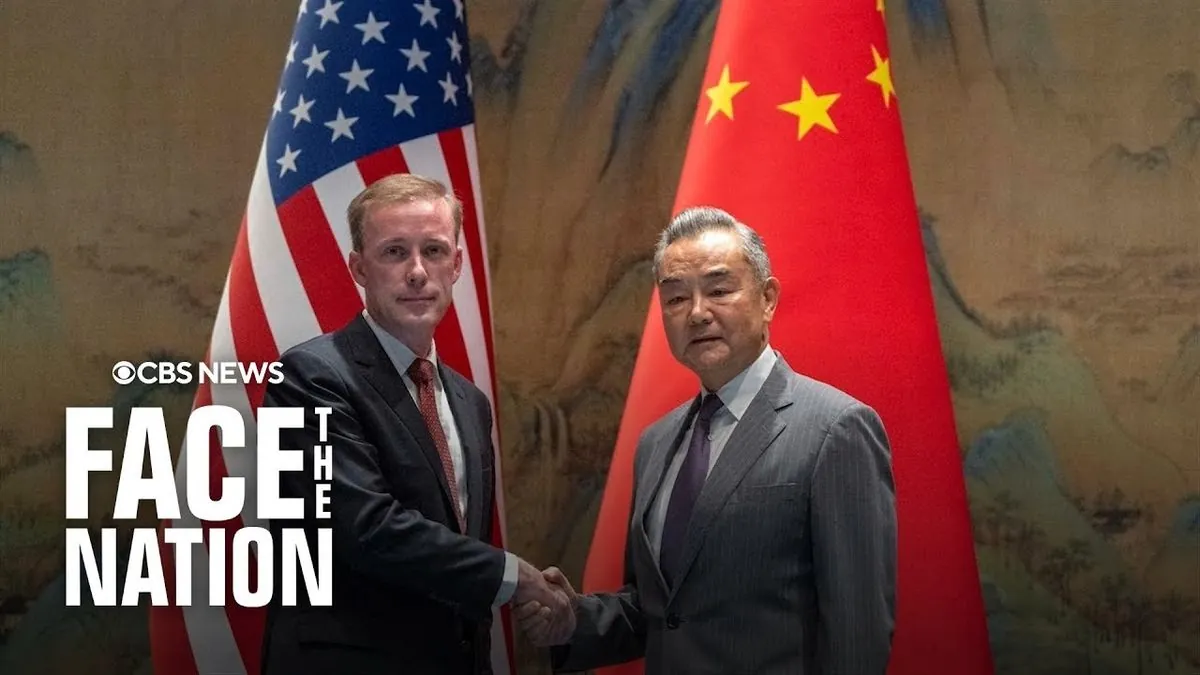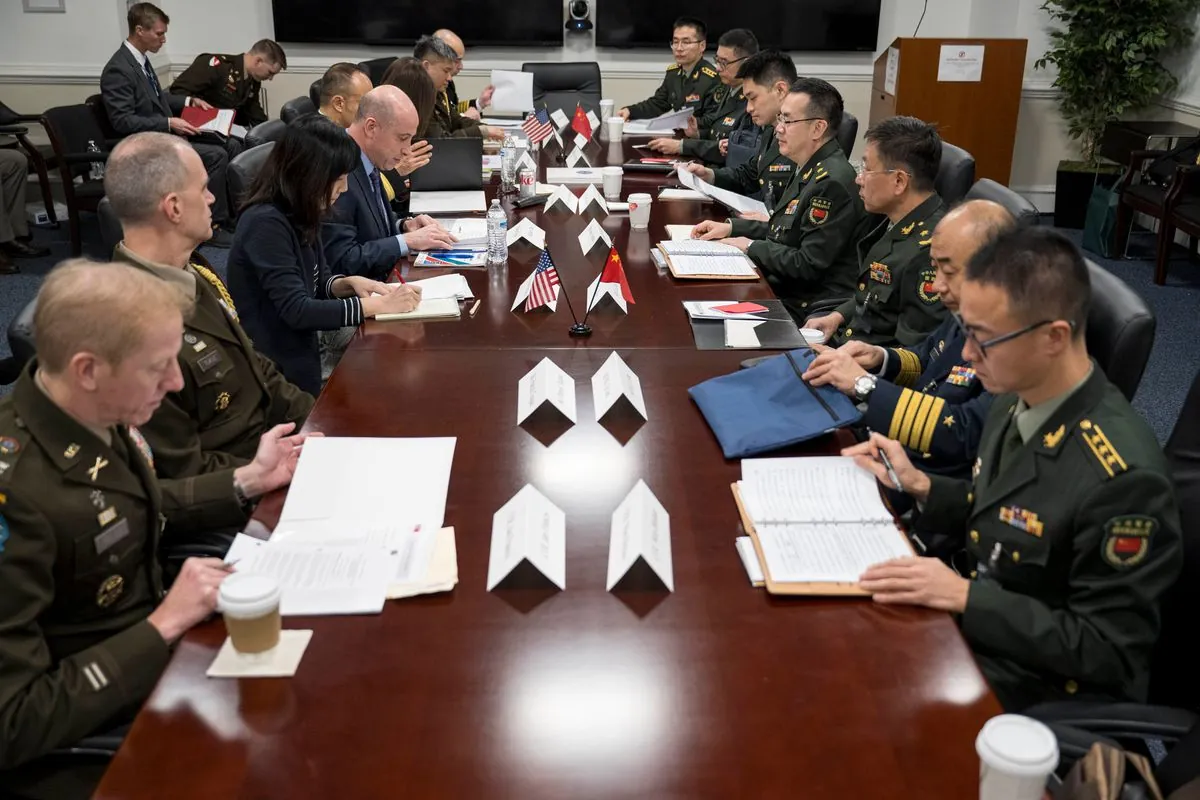US-China Talks: Sullivan Meets Beijing Officials to Ease Tensions
Jake Sullivan, US National Security Advisor, continues high-level meetings in Beijing to address bilateral tensions. Discussions cover global issues, trade concerns, and strategic cooperation ahead of the US election.

Jake Sullivan, the US National Security Advisor, commenced his second day of high-level discussions with Chinese officials in Beijing on August 28, 2024. These talks, scheduled from August 27 to 29, aim to mitigate tensions between the world's two largest economies ahead of the November 5, 2024 US presidential election.
The meetings involve Sullivan and Wang Yi, China's top diplomat, along with other senior officials. Their agenda encompasses a wide range of global and bilateral issues, including:
- Situations in the Middle East and Ukraine
- Chinese territorial claims in Taiwan and the South China Sea
- Trade disputes
- Military-to-military communication
- Fentanyl precursor chemical control
- Artificial Intelligence safety standards

On the first day of talks, Wang Yi acknowledged the recent challenges in bilateral relations. Sullivan emphasized the importance of addressing both areas of agreement and disagreement effectively.
The Biden administration has prioritized direct diplomacy with Chinese President Xi Jinping to manage tensions. This approach aims to establish more robust communication channels, particularly in military affairs, to prevent potential conflicts in sensitive areas like the Taiwan Strait.
"Over the past few years, bilateral relations have gone through twists and turns."
The US delegation is seeking to expand military dialogues to the theatre command level, a move Washington believes could help avert misunderstandings in specific regions. Additionally, the US is urging China to take stronger measures to curb the production of fentanyl precursor chemicals, as fentanyl-related overdoses remain a critical issue in the United States.
Another key topic on the agenda is the establishment of safety standards for Artificial Intelligence, a rapidly evolving technology with significant global implications.
From the Chinese perspective, officials plan to express concerns over US tariffs on various manufactured goods and export controls targeting Chinese semiconductor manufacturers. Beijing is also expected to reiterate its stance on Taiwan's sovereignty.
These talks occur against the backdrop of ongoing global challenges, including the conflict in Ukraine, which began in 2014 and escalated in 2022, and persistent tensions in the Middle East, a longstanding focus of US foreign policy.
As the November 5, 2024 US presidential election approaches, the outcome of these discussions could have significant implications for the future of US-China relations. The diplomatic efforts reflect the complex interplay between domestic politics and international relations in shaping the relationship between these two global powers.


































